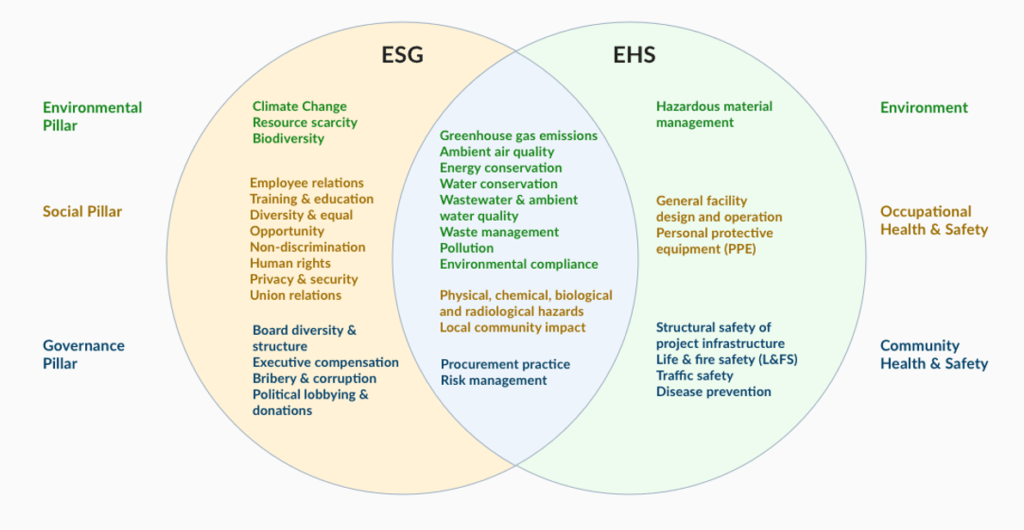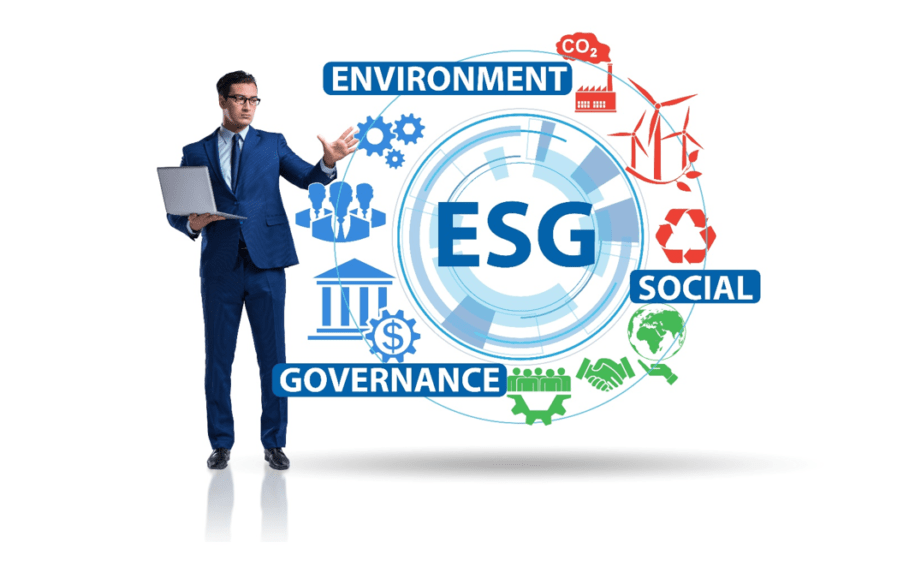For decades, EHS professionals have been reporting on environmental health and occupational safety at the workplace. The earliest purpose of EHS was to reach compliance standards and keep reputational risk at bay. This was only a standard for some high-risk industries such as chemical manufacturing and construction. In some countries, EHS is still not a high priority for most businesses. However, trends towards EHS have changed significantly over the last few years. With the advent of corporate social responsibility, sustainability and Environmental Social and Governance (ESG) principles, the perception towards EHS has changed significantly and now companies are motivated to commit beyond compliance on issues that relate to EHS. These changing trends offer great advantages to EHS professionals, such as more investment into EHS data monitoring and collection and capital spending on EHS technology, along with employee training and potential for growth for EHS managers.
How ESG and EHS intersect
Success in business is no longer measured only by financial profit or the “bottom line”, rather a successful business is identified by its “triple bottom line” – which includes the 3 P’s: Profit, People and Planet. This triple bottom line is now of great importance to both internal and external stakeholders to forecast a company’s future based on both financial and non-financial impacts. At present, ESG (Environmental Social Governance) is a measure to evaluate the non-financial impact of a company and is used in the investor community to forecast future profitability. Interestingly, there is a lot between ESG and EHS that overlaps, as shown in the diagram below:

Future of EHS & ESG together
As suggested in the diagram above, most measurable metrics in ESG are reported by and put EHS professionals at the forefront of the company. Hence, it can be expected that as ESG gains more value for both internal and external stakeholders in the future, causing businesses to make long-term commitments to ESG targets, EHS issues will become more material to business leadership. More capital spending will be put into solutions and technologies used by EHS managers to monitor and report complete, accurate, and timely ESG/EHS metrics such as greenhouse gas emissions and possible hazards. More investment will also be put into training EHS managers and hiring seasoned EHS professionals to stay current and commit beyond compliance.
Even though reporting on ESG principles is not mandated or made a legal requirement for businesses now, regulatory reporting requirements are increasing globally, and businesses are being pushed to report on non-financial impacts by conscious investors and shareholders. Even supply chains are pushing for further reporting and transparency on ESG impacts. Smart and responsible businesses already recognize that voluntarily reporting on ESG data is essential for them to showcase their overall business performance and commitment to ESG objectives and the UN Sustainable Development Goals (SDGs).
For businesses that have not kept up, this is a great opportunity for their EHS managers to identify these changing trends and push leadership for a change in business strategy before ESG reporting becomes essential and opportunities for growth and partnerships are lost.
As the future of business evolves to become more aware of its impacts on people and the planet, EHS and ESG will continue to merge. With the pandemic amongst us, the reality of looking beyond the bottom line has become even more pertinent and so the future of EHS is promising with ESG and EHS managers should be both excited and prepared to take on the challenges that come with building responsible and sustainable businesses.
Author Bio

Experienced in corporate sustainability in both developed and emerging markets, Fatima Fasih has over 5 years of experience in advising businesses on their sustainability strategies and reporting. She also assists businesses in identifying their progress on the UN Sustainable Development Goals.
Currently, working as an independent Sustainability Consultant, Fatima holds a Masters degree in Sustainability Management and Bachelors in Health Sciences and Environmental Science from the University of Toronto.
She is also certified a Greenhouse Gas Inventory Quantifier (GHG-IQ) and aims to work towards pushing businesses to play a larger role in solving the world’s biggest sustainable development problems: hunger, poverty, and inequality.



